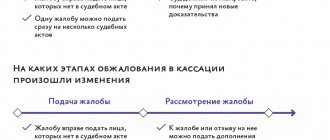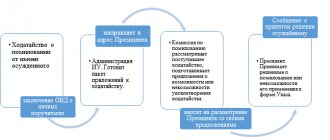What can a magistrate judge do?
The magistrate deals with civil, criminal and administrative cases independently, without the involvement of third parties.
The official is vested with the following powers:
- execution of justice;
- supervision over the execution of decisions and sentences;
- checking the validity of decisions and actions of officials, etc.
In accordance with Law No. 3132-1 of June 26, 1992, justices of the peace are independent. They are subject to the Constitution and the law. They do not give anyone an account of the administration of justice.
The main advantage of turning to justices of the peace is its simplified scheme. The procedure is as simple as possible, which allows you to quickly consider simple cases.
Status Features
So, what do justices of the peace do? The same as their colleagues in other courts of the country, according to their competence: they accept cases for their proceedings and make decisions on them. Thanks to this, they have the same privileges as other judges in terms of immunity (a special procedure for bringing them to criminal and disciplinary liability).
Read also: What is the Higher Self? Layers of Reality
The state provides additional guarantees in the form of the right to retire earlier than the majority of citizens. The salary of Themis's servants is significantly higher than that of many civil servants. True, the difference in the income of members of the judicial corporation is noticeable (80 thousand rubles, instead of 200 thousand rubles per month)
Of course, additional payments are provided for length of service, for qualification class, bonus payments, etc. Actually, this is the main thing that distinguishes a justice of the peace from an ordinary one.
Civil cases.
Civil cases heard by magistrates are as follows:
- on divorce in the absence of disputes about property and education of minors;
- on the issuance of a court order;
- cases related to family law relations;
- on the decision to use the property;
- labor disputes.
The official may consider matters relating to property.
The maximum amount considered by the magistrate is RUB 100,000. If the cost of the claim is higher, then it is filed in the district court.
An official cannot single-handedly consider disputes about inheritance, as well as statements regarding the results of the use of products of intellectual activity.
You can contact the magistrate on the issue of consumer protection. Claims are accepted in court if the amount of damage is within 100,000 rubles.
However, when filing an application, the consumer has the right to demand compensation for moral damage, payment of a fine, and penalties by the defendant. In this case, the cost of the claim may exceed the specified limit.
The magistrate does not accept claims regarding collective labor disputes. The official is not competent to make decisions on applications for reinstatement.
Types of judicial disputes within the competence of magistrates
Important! Please keep in mind that:
- Each case is unique and individual.
- A thorough study of the issue does not always guarantee a positive outcome. It depends on many factors.
To get the most detailed advice on your issue, you just need to follow any of the suggested options:
- Use the online chat in the lower corner of the screen.
- Call:
For all regions of the Russian Federation: +7 (800) 511-86-74
In most cases, magistrates deal with court cases regarding divorce, division of property (if a marriage contract has not been drawn up), and everything related to violation of traffic rules is also within their powers. Below we will look at these disputes in more detail.
It is worth noting that criminal cases considered by the magistrate court are limited by the requirement where the term of imprisonment should not exceed 3 years, or the amount of monetary compensation is no more than 100 thousand rubles.
Civil cases
The powers of judges include the analysis of the following list of civil cases:
- cases of issuing court orders;
- cases of divorce of spouses, provided that the spouses do not share children as part of this legal dispute;
- cases on the division of common property of spouses, provided that the cost of the claim in this dispute is less than 100 thousand rubles;
- other disputes relating to family legal relations, excluding cases of challenging, establishing or establishing paternity (maternity), deprivation of parental rights, as well as the adoption of children;
- cases not exceeding the value of the claim of 100 thousand rubles, in relation to property (except for inheritance cases) that appeared as a result of intellectual activity;
- cases arising within the framework of labor relations, excluding cases of reinstatement and consideration of collective labor disputes;
- cases to determine the procedure for using property.
In addition to the list indicated above, disputes arising from the “Consumer Rights Protection Law” fall under the jurisdiction of magistrates.
Example No. 1 : Let’s imagine that Puikin V.V. purchased construction materials (for example, sidewalk curbs), with delivery to the client, but after acceptance of the goods Puikin V.V. discovered that the supplied construction materials were of poor quality, which he reported to the seller, but the seller refused to replace the goods or return the money, in connection with this his rights as a consumer were violated, and he has the right to go to court.
Example No. 2 : Let’s imagine that G.V. Titova bought a refrigerator, but a defect was discovered in it (it does not freeze), and the store refused to accept the product back or replace it with a similar one.
All examples considered are subject to consideration in the magistrate’s court, provided that the cost of the property (goods) does not exceed 100 thousand rubles. In addition, a claim such as moral damages can be included in the statement of claim, and its amount is not limited by the rule above.
Administrative Affairs
The nuances of administrative cases consist in the consideration of cases of violation of the law, in relation to the state or public order, usually in such cases, on the one hand, the defendant (citizen) acts, on the other hand, self-government bodies. The list of common violations is as follows:
- finding a citizen drunk in a public place;
- theft of someone else's property (petty theft only);
- violation of traffic rules (traffic rules);
- violation of the rules for carrying out business activities (trade).
Since many offenses fall into this category of cases and cannot be described in one article, let’s say that a magistrate can consider most administrative cases that are part of the Code of Administrative Offenses of the Russian Federation.
Criminal proceedings
Let us remind you once again that the magistrate’s court can consider criminal cases in which the maximum sentence is less than 3 years in prison (the nuances are described in Article 31 of the Code of Criminal Procedure of the Russian Federation). This list of offenses includes:
- intentional minor harm to health was caused (Article 115, part 1 and part 2);
- battery (Article 116, part 1 and part 2);
- torture (Article 117);
- serious harm to health was caused due to negligence (Article 118);
- This list also includes the following articles of the Criminal Procedure Code: Articles 119, 129, 130, 133.
Example No. 3 : V.V. Nikitin was insulted and slandered by his neighbor on the landing, on the basis of Art. 129 and 130 of the Code of Criminal Procedure, he has the right to file a lawsuit against his neighbor so that justice will prevail and a fine will be imposed on the neighbor.
Administrative matters.
Cases considered by magistrates in the first instance may concern administrative violations. Officials have received such powers since 2021.
A peculiarity of the consideration of administrative cases is that one of the parties is usually local government bodies.
A justice of the peace is approached for justice when cases of hooliganism or fraud are revealed.
The official may consider applications for violating traffic rules or appearing in a public place while intoxicated.
The magistrate has the right to determine punishment for almost all offenses provided for in the Code of Administrative Offences. Legal proceedings are carried out in the manner prescribed by administrative law.
Features of the World Court
So, the first instance for most categories of cases is the magistrate's court, the determination, decision and other acts of which are binding on all citizens, since they are adopted in the name of the state. One of its characteristic features is regulation at two levels: the federal and the level of the subject of the federation, which provides a certain autonomy and allows taking into account the specifics of the regions. As part of the Russian justice system, the magistrate's court has a number of individual characteristics that determine its place in the overall picture, for example:
- jurisdiction, which designates those categories of cases that are considered by it;
- the structure determining the territorial distribution of courts;
- features of the formation of its composition;
- specific tasks assigned to him.
Criminal proceedings
Justices of the peace consider criminal cases if the maximum punishment under the article is no more than 3 years (Article 31 of the Code of Criminal Procedure of the Russian Federation).
Among them are the following crimes:
- deliberately causing minor harm to health;
- slander;
- beatings;
- causing serious harm through negligence;
- death threats, etc.
Exceptions are specified in Art. 31 Code of Criminal Procedure of the Russian Federation. The magistrate does not consider cases of murder committed in a state of passion, carrying out business activities without registration and license, violation of equal rights and freedoms of a citizen, etc.
These crimes are tried in the district court, despite the fact that the maximum punishment for them is no more than 3 years in prison, correctional labor or a fine.
Appeal to the magistrate. Sample. [18.51 KB]
Procedure for filing an appeal to the magistrate's court
To apply to a court at this level, you must complete several steps:
- Pay the state fee. Persons who go to court to protect their rights on the following issues are exempt from paying it:
- consumer rights;
- requesting alimony;
- protection of children's rights;
- compensation for damage caused by a crime;
- as well as disabled people of groups 1 and 2, their associations, participants and disabled people of the Second World War, heroes of the USSR and the Russian Federation.
- Competently draw up a statement of claim. Indicate all the necessary information, the name and essence of the claim, requirements, provide evidence of the case.
- Attach the necessary documents and wait for the call regarding the claim.
Collection of alimony is one of the issues within the competence of the magistrate’s court
After filing a claim, a decision on it must be made within 10 days. This may be leaving the claim without progress, refusal to accept it, or a decision to consider the case by a magistrate, which must be carried out within a month from the date of filing the claim.
THIS IS INTERESTING! Issues regarding the issuance of a court order are considered by the court within 5 days and do not require the presence of the parties at the court hearing. This is especially important when it comes to seeking child support from a working parent. The procedure is very simple and does not require time or financial costs (there is no state duty).
What cases are being considered?
What does a magistrate do? It would seem that the answer is simple. Judges at the district level have specialization. One group deals with criminal cases and consideration of materials under the Code of Administrative Offences. The second is the consideration of civil and administrative cases. Specialization is spreading further, for example, someone deals primarily with credit disputes, someone is well versed in matters affecting the interests of children, etc.
The competence of magistrates includes cases of all categories, another thing is that they are considered simple, their complexity lies more in the abundance of documents than in the disputes themselves.
Tags
magistrates as a result of the judicial reformMagistrates are not magistrates must judge must magistrates in magistrates' courts. these are the courts of the first lower court in the general court system such a magistrate's court is such a magistrate's court First magistrates rubles. Justices of the Peace Justices of the Peace book. World justice - activities of magistrates' courts. Magistrates' courts of jurisdiction. Magistrate to magistrate First magistrates' courts of the first lower primary source is obligatory. is the first stage of the first type of authority. First World History of the First World Court of First Instance
informationjurisdiction of Russialegal lawyer on the Internet created a point legalintroduced in Moscowthe whole site of its previous history
What is the purpose of creation?
Magistrates were first established in 1864 during the reforms. And the main goal was to ensure maximum access to justice for the majority of the population, since such positions were and are being created in areas, and the latter, in turn, are based on the population in a given territory.
It is worth noting that these are the busiest judges in our country. According to statistics, magistrates received the following for consideration: in 2001 (the first full year of their work) - approximately 1.3 million, in 2002 - 2.4 million, in the first half of 2003 - 1.5 million cases, which is 25.6, respectively; 47.6 and 57.6% of all cases received by the courts of first instance.
Magistrates completed: in 2001 - 1.2 million cases, in 2002 - 2.3 million cases, in the first half of 2003 - 1.6 million cases, which is 23.8, respectively; 46.2 and 57.0% of all cases completed by the courts of first instance.
It should be noted that in those subjects of the Russian Federation in which the process of forming justice of the peace has been completed, 60–70% of civil cases are considered by justices of the peace.
For ease of understanding, we will divide this topic into two parts: civil process and criminal process.
The procedure for considering cases in the magistrate's court
The legal process is strictly regulated by law and always goes through clearly established stages. Magistrates also act exclusively within the framework of procedure, and their consideration of cases can be divided into the following stages:
- Acceptance of claim
. An application to the Magistrates' Court must be drawn up in compliance with all legal requirements and submitted to the correct authority. At the first stage, the judge checks whether he can accept the claim for consideration, or whether there are grounds for returning it to the applicant. - Preparatory production
. A very important stage of the process, at which the court determines what evidence is needed for a fair decision, demands it from the parties, and determines the circle of witnesses. The issue of a settlement agreement or recusal of a judge can also be resolved here. - Consideration of the case on its merits
. At this stage, the judge evaluates all the collected evidence, hears the parties' arguments and invites witnesses to fully and comprehensively establish the circumstances of the dispute. - Decision-making
. The final stage at which the judge formalizes his verdict into an official document.







